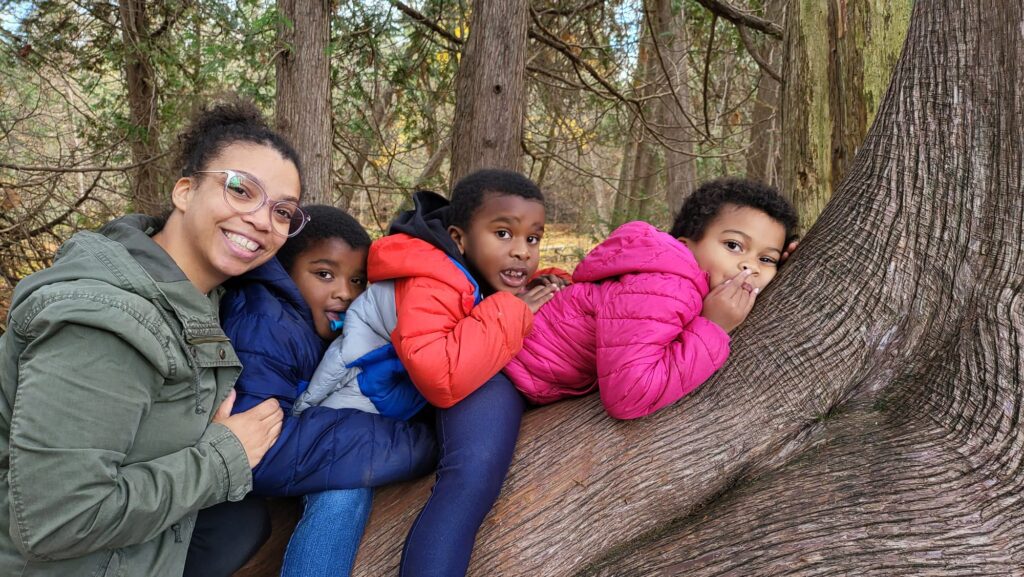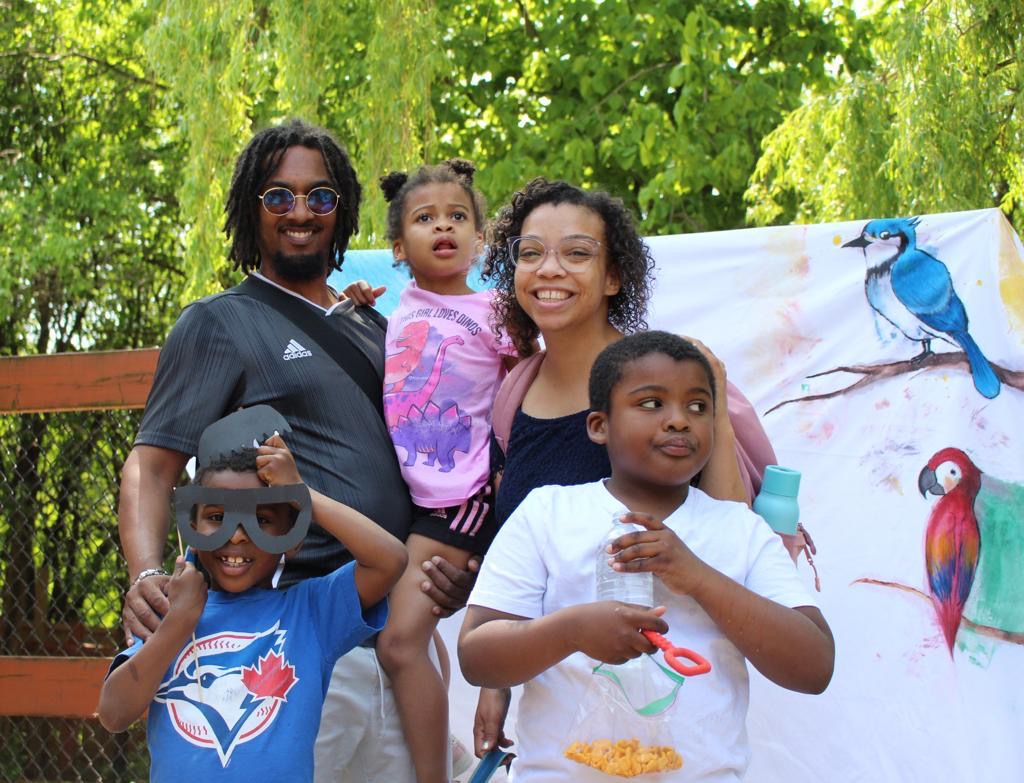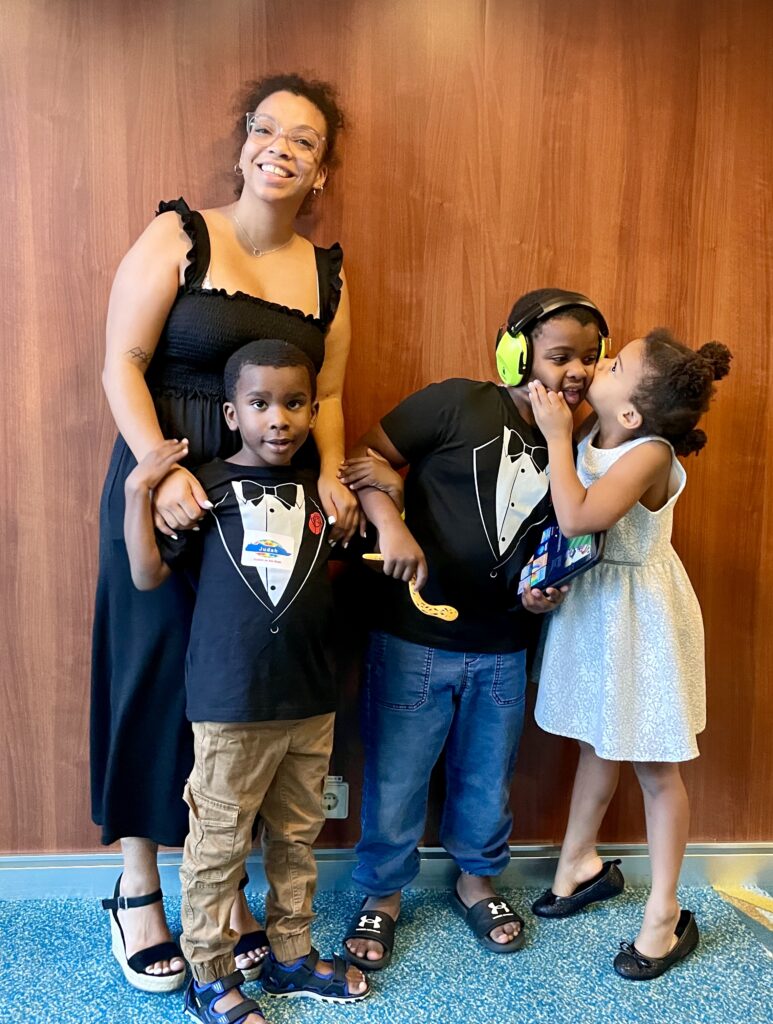Written by Peer Navigator and Grandview Kids parent, Danielle P.
When all three of my children were diagnosed with Autism Spectrum Disorder (ASD), it changed my life in a way I did not expect. My older two children hit every milestone early until they experienced a severe significant regression. They stopped talking, playing, looking at me and responding to their names. They started making repetitive movements that I now know are stims. A year after their diagnosis, my youngest child started exhibiting similar symptoms. I felt like a failure, and I missed who my babies were before they regressed.
By 2018, I found myself divorced with a 1-year-old, a 2-year-old and a 3-year-old, all diagnosed with ASD. I chose to lean into my grief and decided to observe my feelings without judgment. I cried. I journalled. I got therapy. I found respite workers and made self-care a priority. It was lonely until I surrounded myself with different friends and parents who also had children with disabilities. I started following disabled content creators online. I started being more open with my vulnerabilities. Slowly, I noticed that having three children with ASD was not actually as awful as I originally thought. As I allowed my world to expand, I realized a few important things about why their diagnoses felt so devastating in the beginning.

I’m ashamed to say that I pitied people with disabilities. I didn’t want my kids to be associated with “those type of people”. I wanted my kids to be “normal” because I thought that any deviation was bad. For the first time in my life, I noticed and addressed my own ableism. Once I let go of that way of thinking, I was able to explore this beautiful new community we belong to.
I had to let go of the expectations I had of my children. Some parents hope their children will excel in sports, pursue higher education, or have a specific career. As parents of kids with disabilities, we have the privilege of letting go of our expectations much sooner than other parents might. Among many other expectations, I wanted my kids to talk, look at me and be potty trained. I had to let go of those expectations and be open to the life my children were capable of and wanted for themselves. I had to learn to accept that my children for who they are.


My children are now school-aged, and I have a new partner who is very involved. My older two children still don’t speak but they are learning to use AAC devices. Pullups are still a part of our lives, but they may not be forever. My kids’ friendships may look different from the types of friends I had growing up, but we have found our people. We presume competence while providing support. We allow THEM to tell us who they are and what they want to do with their lives. I thought my life was over when my kids were diagnosed, and in some ways, it was. That life had to end for a new life to be discovered.
Check out more Grandview Kids articles
- February: Dates of Significance
- Protected: “Roaring as one:” How a friendship between a Grandview Kids graduate and the York University Lions Women’s Hockey team demonstrates ability acceptance in practice
- January: Dates of Significance
- Team Grandview achieves Accreditation with Exemplary Standing, receiving a perfect score
- “Grandview Kids became my life raft” – International Day for People with Disabilities
